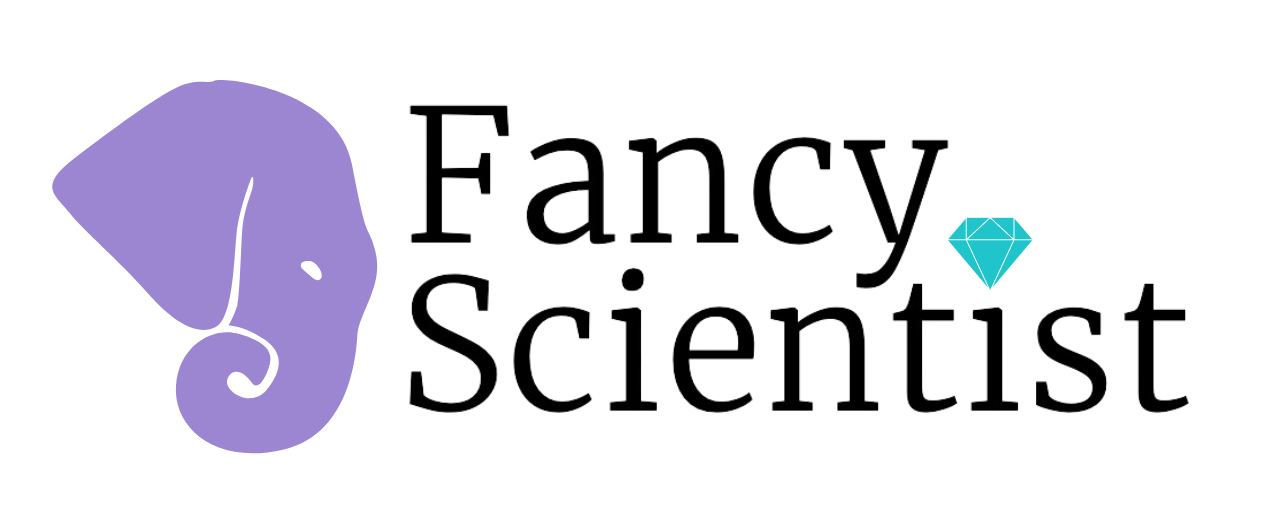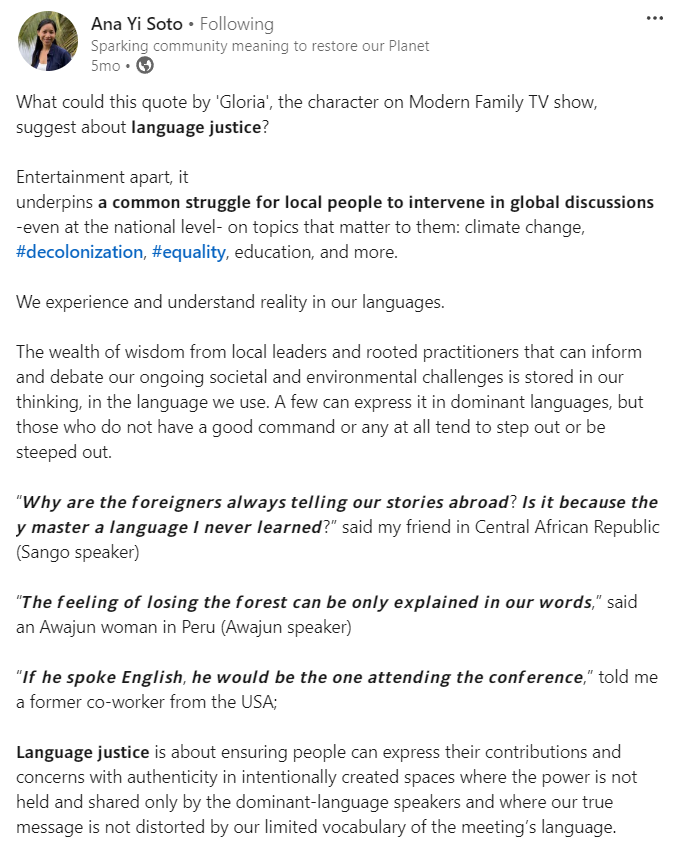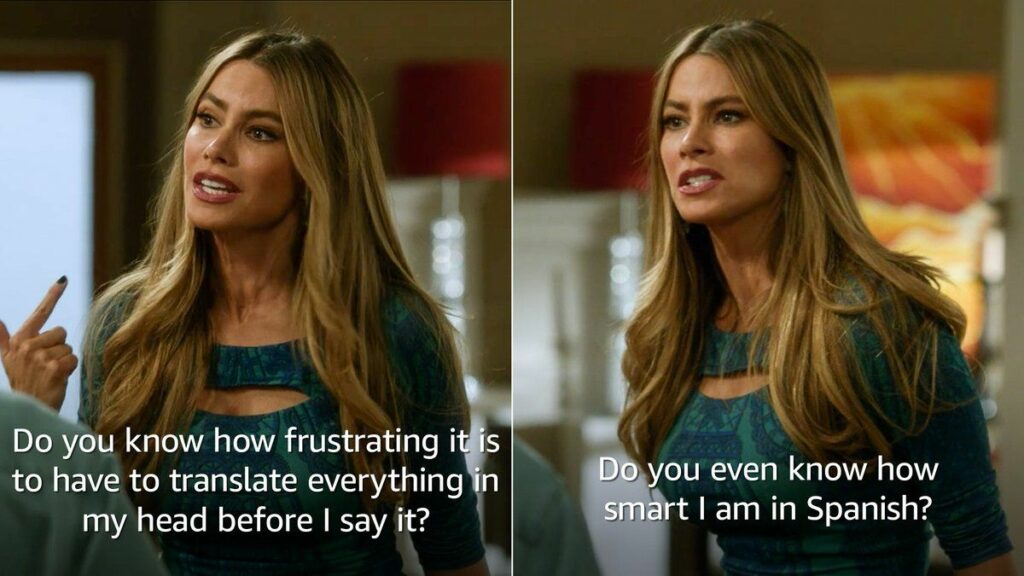I first came across Ana Yi Soto’s work through a LinkedIn post she created on language justice that went viral and due to its importance, she later decided to repost in the Society for Conservation Biology forum. In her post, she shared a meme from the television show Modern Family, in which Gloria, a native Spanish-speaking character from Colombia (the actress playing Gloria, Sofia Vergara is also from Colombia) says, “Do you even know how smart I am in Spanish?”
Powered by RedCircle
Her powerful message about what language you happened to grow up speaking and how it can affect your career in conservation resonated deeply with me, especially given my own experiences conducting fieldwork in Kenya and particularly Gabon, where the national language is French and almost no one speaks English. I remember not being able to fully express myself and feeling dumb. Currently, I, am learning Portuguese and when speaking in Brazil, I even feel like I take on a different personality due to language limitations. I knew immediately that I had to invite Ana to share her insights with our Fancy Scientist community on how conservation being dominated by the English language when it comes to published research affects those who did not grow up as native English speakers, but still want to have a career that can make an impact.
In this episode, we dive into the critical issue of language barriers in conservation work. We explore how the dominance of English in scientific research and conservation efforts can inadvertently exclude vital voices and perspectives from local communities. This conversation is essential for anyone passionate about creating more equitable, effective, and inclusive conservation strategies worldwide.
Language barriers in conservation go far beyond simple translation issues. They can significantly impact the effectiveness of conservation efforts, limit the participation of local experts, and lead to misunderstandings that can derail well-intentioned projects. There are some words that have no meaning in other languages or do not fully translate. Ana and I discuss the frustrations of not being able to fully express complex ideas in a non-native language and the importance of creating spaces where all voices can be heard and valued.
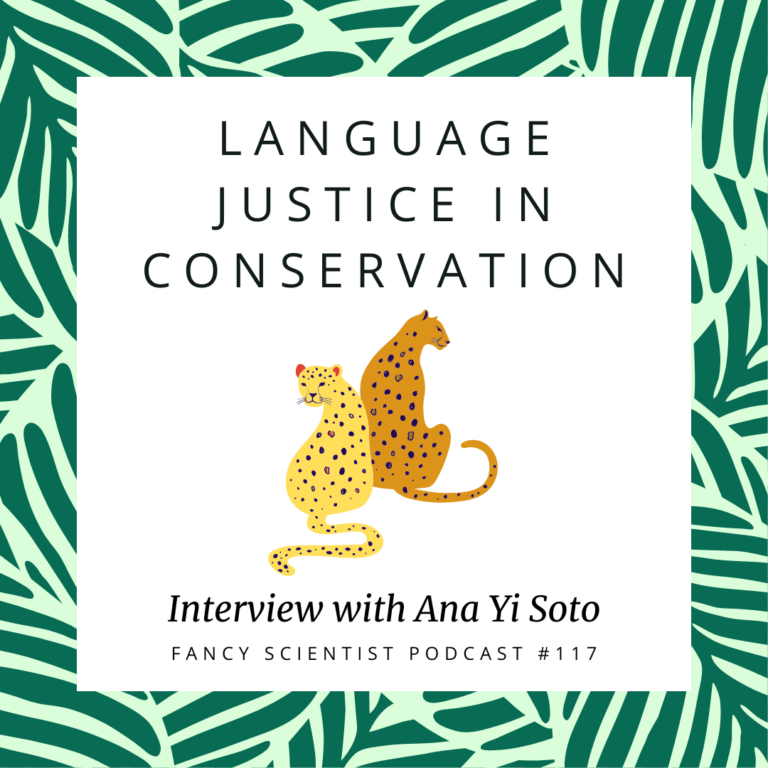
Ana’s journey from a communication specialist in Peru to a global conservation leader working in Madagascar is truly inspiring. She shares valuable advice on maintaining curiosity and humility in conservation work, emphasizing the need for co-creation rather than imposing solutions. We also delve into her current roles with the Global Landscape Forum and CREA Planeta, showcasing how she’s putting language justice principles into action.
This conversation with Ana Yi Soto highlights the urgent need for a shift in how we approach conservation work globally. By prioritizing language justice and inclusivity, we can tap into a wealth of local knowledge and create more sustainable, community-driven conservation solutions.
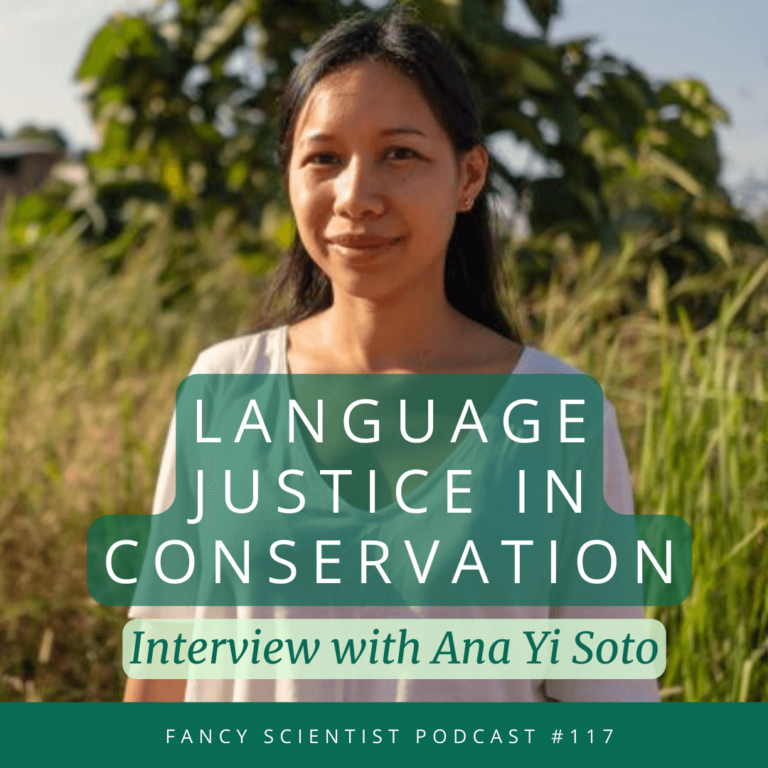
I encourage all of you, whether you’re a seasoned conservationist or just starting your journey, to reflect on how language impacts your work and interactions. How can we all contribute to creating a more inclusive environment in conservation?
Specifically, we go over:
- The concept of language justice and its importance in conservation
- Challenges faced by non-native English speakers in scientific fields and conservation work
- The need for humility and co-creation in conservation projects
- How the landscape is shifting and efforts to increase inclusivity in global conservation events and publications
- Ana’s work with the Global Landscape Forum and CREA Planeta
- How Ana started out working in conservation in Peru and how she was able to pursue work across the globe
- Advice for aspiring conservationists looking to make a difference
- And more!
Resources and Sources in Language Justice in Conservation
Love this post? Share it with friends!
